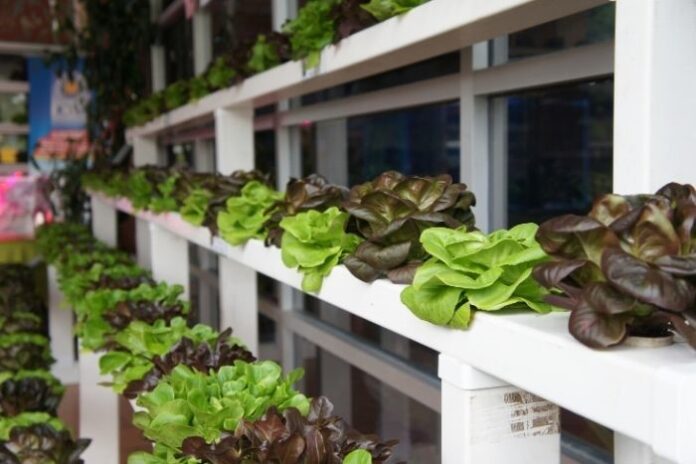While the history of hydroponic gardening is vast, the futuristic development of water-based gardening methods took a new form in the late 20th century to lengthen trips in space. Hydroponic gardens don’t rely on the nutrients in soil—instead, the gardener provides all nutrients through a water-based nutrient solution. This innovation not only eliminates the need to transport heavy soil into orbit but also allows precise control over plant growth conditions.
Today, we can find hydroponic gardens in restaurants and greenhouses all over the country—but how exactly do they benefit astronauts? Learn about the different ways hydroponic gardening benefits space travel, and imagine the future of space travel enhanced by fresh garden vegetables.
Table of contents
The Downsides of Soil
If it comes about that astronauts need to grow their own food during long-distance space travel, why can’t they use soil-based gardening methods? The immediate answers are surprisingly primitive: dirt is too heavy to carry up to space and can burden the astronauts’ air quality. Space travel comes with a massive price tag, and if soil takes up too much room on the rocket, that may mean fewer supplies in other necessary areas.
As for the air quality, it’s important to remember that a space station recycles just about everything to prolong the scientists’ stay. Dirt particles can quickly block the air filter technology and lower air quality. If astronauts no longer require soil for their gardens, they can grow fresh plants without making too much dust.
The Living Dangers of Soil
In addition to the previous points, soil can contain harmful bacteria or organisms that latch onto astronauts and contaminate everything they touch, posing serious health and safety risks. Because scientists must sterilize water anyway, it is easier and more sustainable to create a hydroponic garden free from these unwanted passengers. Hydroponic growing mediums often come pre-sterilized, and the variety of possible mediums—such as coconut coir, perlite, or clay pellets—allows for cleaner, low-dust, and more sustainable food production systems suitable for space environments.
Gardening in an Unsuitable Location
The soil on Mars contains plenty of nutrients that are helpful for plants—but it also contains toxic perchlorates. While there are more experiments and exciting developments yet to come for growing plants on Mars (or any other celestial body), space pioneers would still need something safe to eat in the meantime. The history of hydroponics reflects developments in feeding people without the means to grow fresh produce—much like how any space colony would be without food until the scientists developed a suitable growing method. Hydroponic systems offer a controlled, efficient, and sustainable alternative, minimizing reliance on local soil while supporting long-term survival and independence from Earth-based supply chains.
How Astronauts Use Hydroponics Now
Ultimately, hydroponic gardening benefits space travel by helping future astronauts who may spend extended periods traveling through the vastness of space. Fresh-grown produce and the satisfaction of growing their own vegetables can improve their moods. Currently, NASA has integrated several ways to hydroponically grow plants with the addition of LED lighting to guide growth without gravity: The Veggie system, the Advanced Plant Habitat, and Biological Research in Canisters. Though each project is small in scale, the further development and accessibility of hydroponic gardening paint a bright future for the field of space travel.
In addition to hydroponic innovations, many modern gardeners and homeowners look for ways to combine aesthetic beauty with practical growing solutions—from compact indoor planters to elegant outdoor accents. For example, using decorative containers like wrought iron window boxes at Flower Window BoxesTM not only adds a sophisticated touch to exterior spaces but also provides an ideal environment for showcasing cascading plants or herbs grown with soil or hydroponics.











